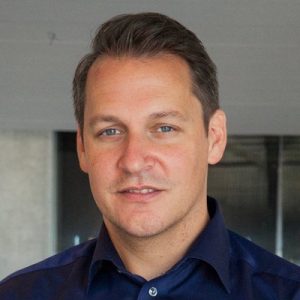
Oliver Harrison
Title: Bringing digital innovation to scale – closed-loop public health
Bio:
Oliver has a life-long passion for healthcare and technology (since deciding to become a doctor and receiving his first home computer at the tender age of six…). With a first degree in neuroscience at Cambridge, Oliver qualified as a medical doctor and practiced for a total of six years with postgraduate training in psychiatry and public health, plus a research interest in computational neuroscience (at the Functional Imaging Lab, UCL).
Oliver first directly combined his interests in healthcare and technology working in the McKinsey healthcare practice based in London, where he spent five years working on projects across Europe, Asia and the United States. In 2006, he was recruited to help build a modern healthcare system in Abu Dhabi, UAE. Oliver spent seven years as Director of Public Health, designing and implementing systems for collecting public health data, for structuring care with evidence-based treatment protocols, and for intervening to improve care in both the clinical and community environments.
Since moving back to Europe in 2013, Oliver has worked as an advisor to the WHO, World Bank and NHS England. He created two UK-based start-ups in healthcare data systems. In 2016, Oliver was recruited by Telefonica to lead Alpha Health, Telefonica Alpha’s first Moonshot. Working in Barcelona, he has created a team to tackle the root cause of chronic disease – perhaps today’s greatest challenge in healthcare. Oliver has built an outstanding team of engineers, designers, researchers and strategists, and built a range of partnerships with the best universities, companies, and experts in the USA, Europe, and beyond. Alpha Health’s work combines HCI, digital health and collaboration with end-users and healthcare practitioners.
Oliver has a unique track-record delivering results in health innovation, tech, and health system reform, and has contributed more than 50 academic publications and presentations. He has spent two years as a member of the World Economic Forum Global Future Council on Human Enhancement and sits on the Commercial Board of Guy’s and St Thomas’s Hospital NHS Foundation Trust. Oliver was awarded Freedom of the City of London in 2012.
Abstract:
Since 1960, the proportion of GDP spent on healthcare has increased from ±4% to more than 10%, yet at the same time historic increases in life-expectancy have plateaued. The reason is a shift in disease burden from infections and accidents to chronic diseases. Worldwide, healthcare systems struggle to manage such diseases due to both their chronicity and their roots in everyday behaviour (beyond the influence of the clinical environment). What is required to tackle chronic diseases is a ‘closed-loop’ system capable of sensing health and behaviour, of inferring proximate causes, and of delivering targeted interventions. Today, advances in digital sensing, in design for user engagement, and in neuroscience and behavioural economics have created an historic chance to deliver closed-loop public health at the population scale. The economic opportunity is huge, let alone the promise of transforming the health of people across the planet and deepening our understanding of human behaviour.

Wendy J. Nilsen, PhD
Title: Making Health Smarter
Bio:
Wendy Nilsen, Ph.D. is in the lead Program Director in the Smart and Connected Health program. Her work focuses on the intersection of technology and health. This includes a wide range of methods for data collection, advanced analytics and the creation of effective cyber-human systems. Her interests span the areas of sensing, analytics, cyber-physical systems, information systems, big data and robotics. More specifically, her efforts include: serving as cochair of the Health Information Technology Research and Development working group of the Networking and Information Technology Research and Development Program; the lead for the NSF/NIH Smart and Connected Health announcement; convening workshops to address methodology in technology in health research; serving on numerous federal technology initiatives; and, leading training institutes. Prior to joining NSF, Wendy was at the National Institutes of Health.
Abstract:
Personalized medicine and prevention approaches, aided by new sensing, analytics, language, visualization and interface methods, have the potential to transform health from reactive treatments based on deviations from population-level data to one in which intervention and prevention is tailored to individual characteristics. While this may be our ideal state, to make this happen will require a range of new fundamental scientific advances across computing, engineering and the behavioral and social sciences in concert with the efforts of the biomedical research community. These partnerships are needed because the solutions to complex health problems and processes must effectively satisfy a multitude of constraints arising from heterogeneity of data, semantic mismatch, limitations of current cyber physical systems, lack of ground truth, cultural dynamics, cognitive limitations, and barriers to patient, provider and caregiver behavioral change. This talk explores the opportunities and challenges in developing a smarter health ecosystem and highlights promising new areas of research.

